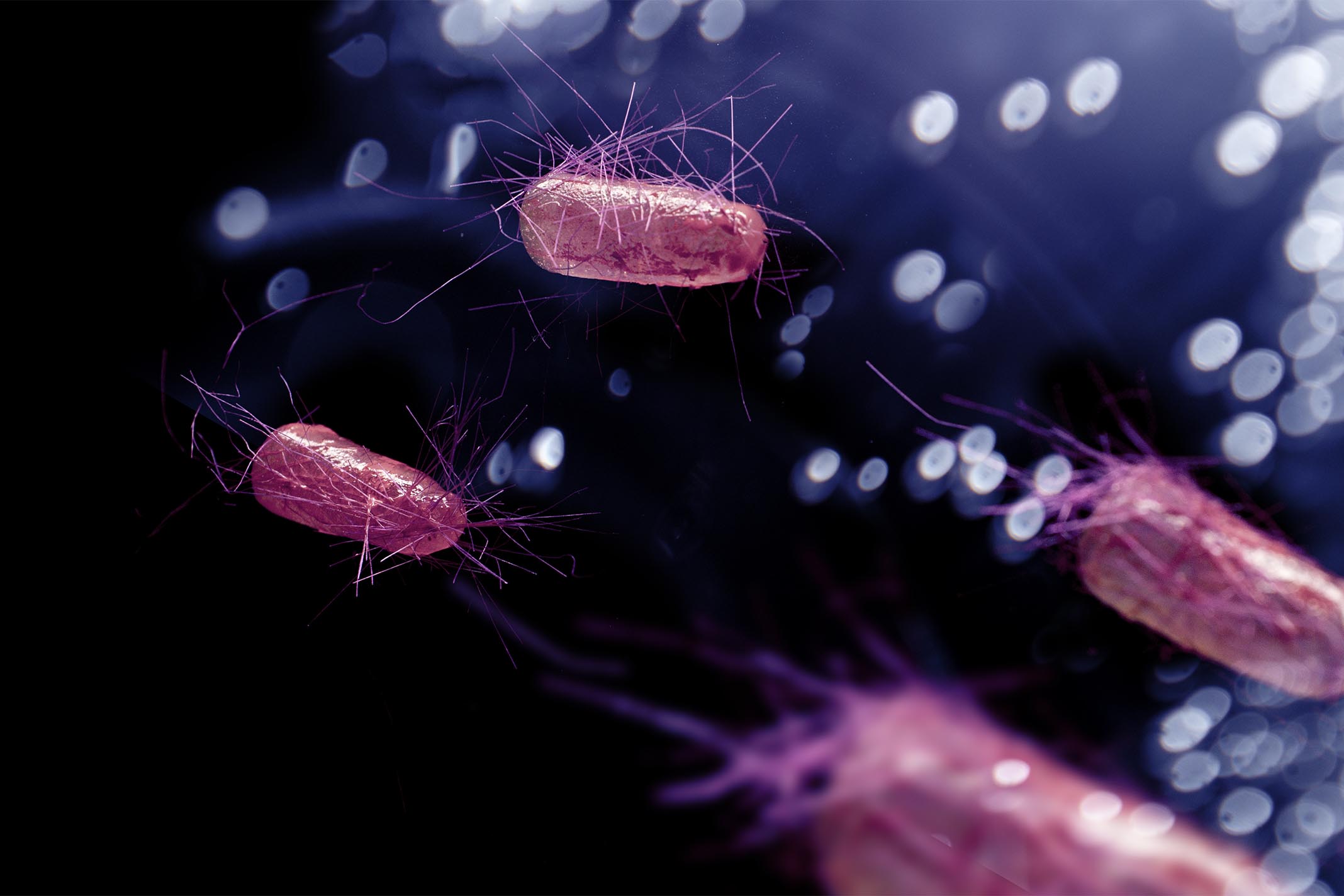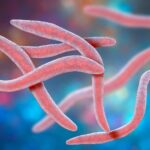• Fat culprit
• The role of bile salts
• Bacterial competition
What is already known on this topic
The microbiota is known to prevent the gut from being colonized by pathogens such as Salmonella. But it’s unclear whether diet can enhance an individual’s susceptibility to infection by altering the gut microbiota composition.What this research adds
A low-fiber, high-fat Western diet promotes Salmonella colonization and diarrhea in mice by increasing the level of specific bile salts, which are well tolerated by Salmonella but not by most gut bacteria. These effects, however, are reduced in the presence of E. coli strains that compete with Salmonella.Conclusion
Understanding the role of diet in Salmonella gut colonization as well as the mechanisms beyond the Salmonella-E.coli competition could help prevent Salmonella infections by modulating the gut microbiota.
A low-fiber, high-fat Western diet promotes Salmonella gut colonization and diarrhea in mice, according to a recent study. The findings suggest that fat promotes Salmonella colonization by increasing the level of bile salts that are well tolerated by this pathogen but not by most gut bacteria.
The study, published in Nature Microbiology, could help prevent Salmonella infections by modulating gut microbes. These types of infections are usually prevented by the gut flora, but it’s unclear whether diet can enhance an individual’s susceptibility to Salmonella infection by altering the microbiota composition.
To address this question, Sandra Wotzka and Markus Kreuzer at ETH Zürich and their colleagues fed mice a typical Western diet, which is low in fiber and high in fat. Another group of mice was given a standard plant-based diet. Then, the researchers infected the animals with the pathogen Salmonella Typhimurium.
Fat culprit
The low-fiber, high-fat Western diet boosted gut colonization by both Salmonella and the mouse commensal Escherichia coli. But the same effects were not elicited by a low-fiber, low-fat diet, which suggests that fat might play an important role in gut colonization.
To better understand the role of fat, the team increased the fat content in mice food. Shifts to this diet promoted Salmonella gut colonization in mice that lacked E. coli. Feeding the animals oleic oil, which is the main digestive breakdown product of lard, raised the levels of Salmonella in their stool by tenfold.
The role of bile salts
Because the microbiota composition changed within the first 24 hour after mice were given a high-fat diet, the team set out to look whether bile salts, which are required to digest fat, might influence Salmonella gut colonization.
Bile salts inhibited the growth of numerous gut microbes, but not that of Salmonella or E. coli, which were about tenfold more resistant than Bacteroidetes and Firmicutes bacteria. Two doses of the bile salt cholate promoted Salmonella gut colonization almost as efficiently as did a dose of antibiotic. This suggests that bile salts alone can boost pathogen colonization independent of diet.
Bacterial competition
Next, to assess if bile-dependent differences in bacterial growth could explain why fat promotes Salmonella colonization, the researchers developed a mathematical model and used it to predict the outcome of competition between Salmonella and a healthy gut microbiota.
According to the model, Salmonella outcompetes the microbiota at bile salt concentrations typical of a gut exposed to high levels of fat, while the microbiota stays dominant at lower bile salt concentrations. The researchers then verified these predictions in mice. However, the team found that Salmonella blooms were 10 to 1,000-fold smaller when the mice microbiota included E. coli strains that competed with Salmonella.
More work is needed to identify the mechanisms beyond the Salmonella–E.coli competition. Such knowledge could help prevent Salmonella infections by giving individuals competitive E. coli strains, the scientists say.











